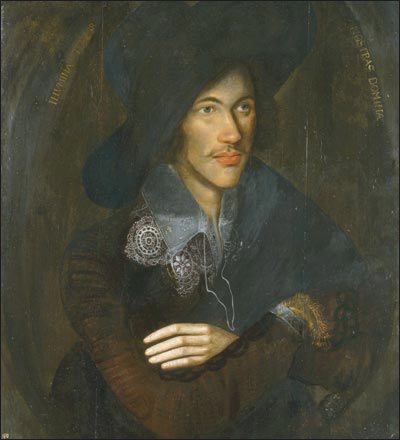by Maria Evans
The feast day of John Donne:
One of the best pieces of impromptu unsolicited preaching advice I ever got came from a friend who once told me, “If you ever find yourself writing a sermon and you are trying to sound eloquent, but your brain is stuck or you’re on short notice, you can’t miss by quoting a line or two of John Donne’s poetry–with attribution of course.” Truth be known, John Donne has probably saved more reputations of rookie preachers, or time-pressed preachers in all of Anglicanism, than anyone else, thanks to the vivid imagery of both his religious poetry and his love poetry.
What most people don’t realize (because he’s so well known as a poet) is that Donne was also an ordained priest, and that he wrote ten volumes of sermons. (Be advised; they are not the eight to twelve minute variety we are used to hearing in the Episcopal Church; many top 20 pages.) Most of his poetry was written prior to his acceptance to Holy Orders, and what many also don’t realize is his poetry, save seven poems and part of another, was only formally published after his death. Donne was content to pass them around to his friends and admirers and let it go at that. Although today, no English Literature class would be complete without him, his poetry mostly languished in relative obscurity until the early 20th century, only peeking its head up a few times in 300 years, and even then, his poetry was panned as a bit on the gooey and soppy side. The story of how he ended up being Anglicanism’s poet laureate is in itself a resurrection story.
What is it that hooks us about Donne’s poetry? Perhaps it is because it is a window of deep love and hope in a world of sorrow and affliction. John Donne was no stranger to affliction. His brother Henry was imprisoned for harboring a Jesuit priest, was tortured, and died of the plague. He pretty much ruined his chance for a career in politics by marrying the 17 year old niece of his employer–in fact, the marriage prevented him from obtaining regular employment for 12 years, until he accepted Holy Orders. His wife died a few days after delivering their twelfth child, who was stillborn. He contemplated suicide. Yet, whether it was his poetry or his sermons, he never loosens his grasp on love–whether it’s romantic love or love of God.
Donne’s poetry reminds us that as long as love exists, death cannot win. He expresses this so eloquently in perhaps one of his most famous poems, Death be not proud:
Death, be not proud, though some have called thee
Mighty and dreadful, for thou art not so;
For those whom thou think’st thou dost overthrow
Die not, poor Death, nor yet canst thou kill me.
From rest and sleep, which but thy pictures be,
Much pleasure; then from thee much more must flow,
And soonest our best men with thee do go,
Rest of their bones, and soul’s delivery.
Thou art slave to fate, chance, kings, and desperate men,
And dost with poison, war, and sickness dwell,
And poppy or charms can make us sleep as well
And better than thy stroke; why swell’st thou then?
One short sleep past, we wake eternally
And death shall be no more; Death, thou shalt die.
How have the words of John Donne helped you better understand the love of God?
Maria Evans, a surgical pathologist from Kirksville, MO, is a grateful member of Trinity Episcopal Church and a transitional Deacon in the Episcopal Diocese of Missouri. You can also share her journey on her blog, Chapologist.
Image: By Unknown – National Portrait Gallery NPG6790, Public Domain, Link

